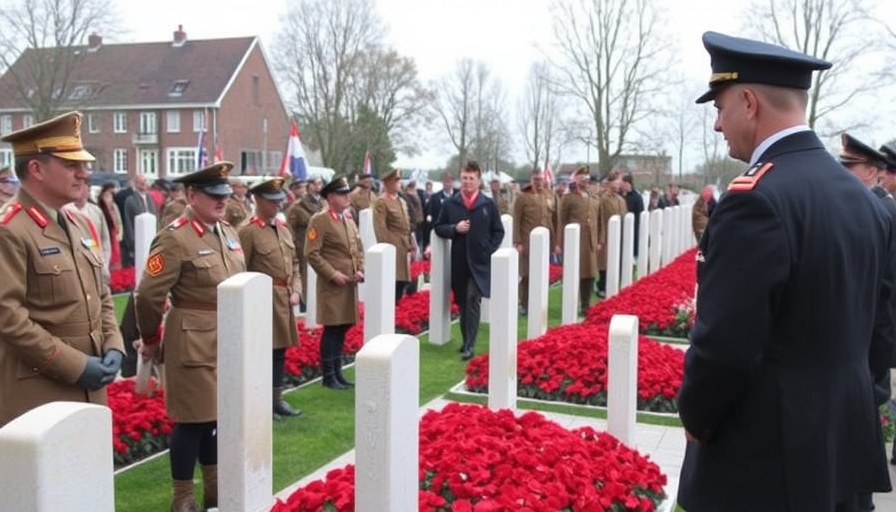
A Lasting Legacy: Remembering the Second World War
The shadows of the Second World War still loom large over Europe and beyond, haunting the landscapes of nations and their collective memories. As we commemorate the 80th anniversary of the war's end, Canadians and the Dutch are united in mourning those who paid the ultimate price for freedom—an essential reminder of a past that continues to shape our present.
Significant Historical Impact
The war officially concluded on May 8, 1945, following Germany's surrender, but the reverberations of this global conflict are felt even today. Around 13 million people had suffered drastically due to the war, some losing family members, homes, and hope for a secure future. Such sacrifices did not only pertain to soldiers on the battlefield; civilians—particularly in the Netherlands—faced harrowing struggles and deprivation during Nazi occupation.
Why Commemorating is Essential
Commemoration is not merely about remembering the past; it's about fostering a culture of appreciation for peace and freedom. Henry Heinen, a Dutch-Canadian who lived through the war in occupied Holland, stresses the importance of sharing these stories with younger generations. He states, "Freedom is never free, and the price is always paid in blood." His poignant reminder emphasizes that understanding history is vital to ensuring that such sacrifices are not forgotten.
A Day of Remembrance and Reflection
On this historic anniversary, ceremonies are taking place in various towns across Canada and the Netherlands, bringing communities together. These events honor fallen soldiers, veterans, and civilians who were affected by the war's brutalities. The gathering serves not only as a tribute but as a means to create dialogue about the lessons learned from the past and how they translate into today’s geopolitical climate.
The Power of Shared Stories
The individual narratives surrounding the war, such as Heinen’s recollections about the Canadian soldiers liberating the Netherlands, add a personal touch to the collective history. His memories of Canadians distributing food, including chocolate bars, while they entered towns underscore the unique bond formed between the nations. Such gestures, while seemingly small, had profound impacts that continue to resonate emotionally.
Future Predictions: Learning from History
The lessons of history offer invaluable insights for future generations. Understanding the causes and effects of wars can positively influence contemporary political discourse. Advocacy for peace, shared humanitarian goals, and joint memorialization events can foster international relationships that prevent potential conflicts. As the world evolves, commemorating pivotal moments like the Second World War compels nations to reflect and recommit to pacifism.
Concluding Thoughts: A Call to Appreciate Freedom
As communities across Canada and the Netherlands gather to remember the sacrifices of those who came before, it’s essential to translate that reverence into action—a mission to cherish and uphold the freedoms we enjoy today. With whispers of conflict still present in various parts of the world, an understanding and appreciation of peace must remain paramount.
 Add Row
Add Row  Add
Add 




 Add Row
Add Row  Add
Add 

Write A Comment